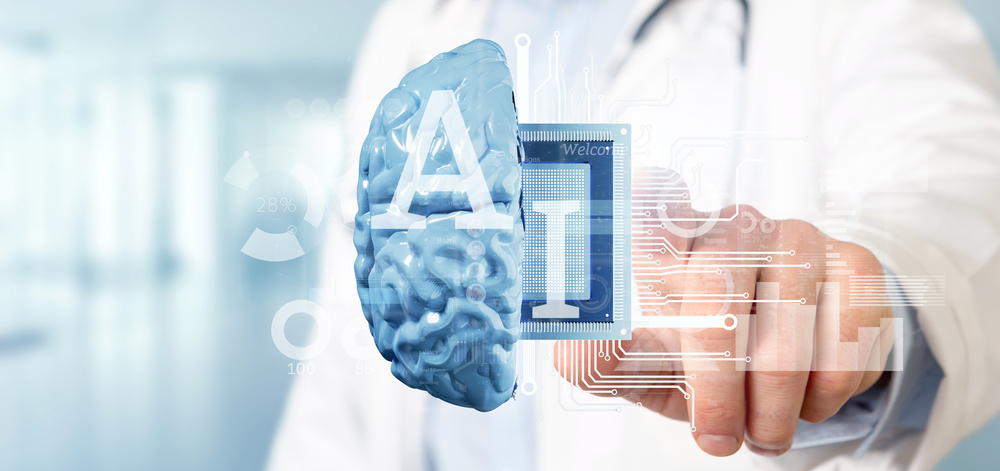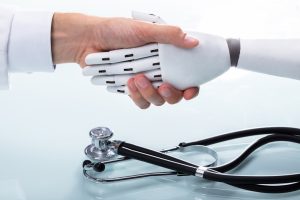
Written by Claire Ward
The recent advances in generative AI is no secret, and their impact on various businesses and industries is undeniable. Yet, one area that remains relatively under-the-radar in this regard is healthcare management, where legacy systems, processes, and technologies continue to dominate.
Healthcare management is often riddled with inefficiencies, ranging from excessive paperwork, to redundant systems and processes. These inefficiencies eventually end up getting passed onto consumers, either in the form of increased wait-times for crucial procedures, or unaffordably high prices.
Fortunately, the rising tide of AI has left no-stone-unturned, and is headed for the stubborn walls of global healthcare in all its fury. In this article, we take a deep dive into the exciting changes taking place within this industry, and its implications for patients, practitioners and other stakeholders.
Enhancing Efficiencies With Streamlined Operations
Over the normal course of operations, a significant portion of time and resources in a medical practice gets lost in largely unproductive activities. This includes billing, filing insurance claims, managing medical records, and a lot more.
As a result, the bureaucratic bloat in the industry has grown to unfathomable levels today, outnumbering physicians and nurses 10 to 1. This is clearly unsustainable, and leaves plenty of room for AI-enabled tools to work their magic and unlock substantial value in the days ahead.
AI, when applied to existing EHR and healthcare management systems can help automate numerous routine administrative processes, in addition to scheduling appointments, optimizing resource allocations, and reducing paperwork substantially.
The last decade saw a steady rise in the use of a management system for health homes, unlocking massive efficiency gains in the process. The 2020s will take this further by pairing the same tools and systems with AI, with limitless possibilities and potential for disruption.
Improving Diagnostics
Most errors and instances of malpractice in healthcare take place in the diagnostics stage, and as a result, the use of AI-enabled tools can help unlock substantial value for patients, practitioners and the broader industry alike.
No matter how experienced and skilled physicians get, they can never match machine learning algorithms when it comes to analyzing vast amounts of patient data and coming up with insights based on the same, often at a small fraction of the time and effort.
In recent years, plenty of AI-enabled tools have entered the fray, offering enhanced capabilities for radiologists when it comes to detecting anomalies that can be missed by clinicians. The capabilities of these tools still remain at nascent stages, but are growing exponentially each passing year.
Clinicians, however, need not worry about being replaced by AI, after all, patients place their trust on other human beings, never bots or programs. Radiologists have feared technology replacing them for over two decades, but despite the monumental advances, disruptive tech has only served to augment their capabilities and expand their reach.
Enhancing Patient Engagement
Technologies such as wearable devices, smartphones, and personalized health information have already done wonders in enhancing patient engagement, but add AI to the mix, and the result is absolutely phenomenal.
There are endless possibilities when legacy technologies are matched with advanced generative AI, particularly when it comes to healthcare. Right off the top, we imagine use cases such as chatbots, which can answer questions for patients, clarify doubts regarding their records, appointments, treatments, and more, without having to disturb a doctor or nurse in the process.
In addition to this, doctors have an option to remotely monitor their patients, get alerted about abnormalities right away, before they turn into life threatening emergencies.

Facilitating Data-Driven Decision Making
Data is at the core of healthcare management systems, and the volume of healthcare data is growing exponentially. AI algorithms have the ability to process and analyze large datasets, uncovering meaningful insights that can inform decision making.
For instance, AI can identify population health trends, predict disease outbreaks, and optimize resource allocation based on real-time data. By leveraging AI’s capabilities, healthcare organizations can make data-driven decisions that have the potential to improve patient outcomes, reduce costs, and enhance overall healthcare quality.
Hospitals, nursing homes and clinics have long generated copious amounts of data, which have largely gone unused for the most part. With AI and advanced analytics, this data can finally be put to use, helping practitioners add plenty of value to patients in the long-run.
Addressing Ethical & Privacy Concerns
While the potential benefits of AI in healthcare management systems are immense, it is important to address the ethical, privacy, and security concerns associated with its use. As AI algorithms rely heavily on data, it is crucial to ensure patient data privacy and security.
Striking the right balance between data access for AI systems and protecting patient confidentiality is a complex challenge that requires robust data governance frameworks and regulatory oversight.
Additionally, ethical considerations such as transparency, accountability, and fairness in algorithmic decision-making processes must be carefully addressed to maintain trust in AI-powered healthcare systems.
Many of the ethical and privacy concerns pertaining to the use of AI for healthcare are yet to even be fully understood.
The issues will only come to light when there have already been instances of abuse, and this makes it pertinent to have ethical frameworks in-place, in addition to laws and regulatory frameworks, which often tend to be outdated fairly quickly, as more and more disruptive technologies come to fore.
The Road Ahead: Collaboration & Human-AI Partnership
As we embrace the growing role of AI in healthcare management systems, it is essential to recognize that AI is not a replacement for human healthcare professionals but a tool to augment their capabilities.
Collaboration between humans and AI is key to harnessing the full potential of this technology, and as such, any resistance to the adoption of such technologies must be dealt with using extensive training and awareness programs for all stakeholders involved.
Healthcare organizations should invest in training their workforce to understand and effectively utilize AI-powered systems, fostering a culture of continuous learning and adaptation. By embracing a human-AI partnership approach, we can ensure that AI serves as a valuable ally in delivering high-quality, patient-centered care.
Please also review AIHCP’s Health Care Certificate Programs and see if it meets your academic and professional goals. These programs are online and independent study and open to qualified professionals seeking a four year certification.
